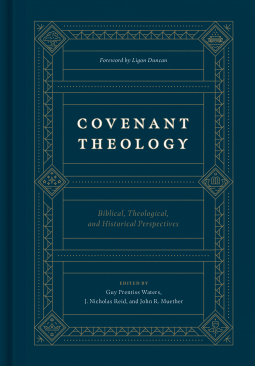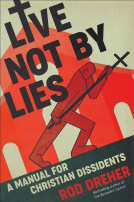
Covenant Theology
Biblical, Theological, and Historical Perspectives
by Edited by Guy Prentiss Waters, J. Nicholas Reid, and John R. Muether
This title was previously available on NetGalley and is now archived.
Send NetGalley books directly to your Kindle or Kindle app
1
To read on a Kindle or Kindle app, please add kindle@netgalley.com as an approved email address to receive files in your Amazon account. Click here for step-by-step instructions.
2
Also find your Kindle email address within your Amazon account, and enter it here.
Pub Date Oct 27 2020 | Archive Date Oct 05 2020
Talking about this book? Use #CovenantTheology #NetGalley. More hashtag tips!
Description
This book explores the biblical covenants and how they form the structure of the Bible and inform the Christian life. Featuring contributions from 26 scholars, this monumental work in reformed scholarship is biblically grounded, systematically conveyed, and historically connected.
A Note From the Publisher
PDF may not be compatible with all reading devices
Advance Praise
“It has been said that Reformed theology is covenant theology, for covenant is not merely a doctrine or theme in the Bible but is the principle that structures all its revelation. Robert Rollock said, ‘God speaks nothing to man without the covenant.’ Therefore, it is a delight to see this amazing scholarly collaboration by the faculty of Reformed Theological Seminary, which will surely prove to be a sourcebook for future studies of Reformed covenant theology. Here is a gold mine of biblical and historical studies by trusted pastor-theologians of Christ’s church.”
—Joel R. Beeke, President and Professor of Systematic Theology and Homiletics, Puritan Reformed Theological Seminary; author, Reformed Preaching; coauthor, Reformed Systematic Theology
“The revived interest in covenant theology has sparked rich insights and lively debate. Representing a variety of views and specialties, and united by biblical fidelity and rigorous scholarship, Covenant Theology is a very impressive and welcome collection.”
—Michael Horton, J. Gresham Machen Professor of Systematic Theology and Apologetics, Westminster Seminary California
“Covenant Theology is a gift to the church, a grand account of covenant in Scripture and in Christian theology. This work is scholarly and readable, rigorous and complete. Every chapter is thorough, whether it gathers data on familiar themes or explores new territory. The contributors and editors have presented a resource that pastors and scholars will draw from for many years.”
—Daniel Doriani, Vice President at Large and Professor of Biblical and Systematic Theology, Covenant Theological Seminary
“This rich and learned compendium updates and extends our understanding of God’s initiative in, and manner of performing, his signature saving work. With thirteen chapters on covenant and covenants in the Bible, seven on covenant in Christian thought up to today, and seven on topics like covenant in contemporary New Testament scholarship, dispensationalism, and ‘new covenant theologies,’ no significant stone is left unturned. From Ligon Duncan’s foreword to Kevin DeYoung’s meaty homiletical summation at the end, this volume artfully defines a nonnegotiable Christian teaching and reaffirms its centrality. The annotated bibliography offers an invaluable listing of covenant studies in (and in some cases against) the Reformed tradition over many centuries. These important essays by a distinguished seminary faculty are a lasting gift to scholarship as well as to the church.”
—Robert W. Yarbrough, Professor of New Testament, Covenant Theological Seminary
“Breathtaking! I don’t know of any work that has the diversity and scope of Covenant Theology. Every aspect of the covenant doctrine receives attention from the book’s contributors. Each chapter is an urgent invitation. The covenant doctrine is analyzed here with unquestionable scholarship and inalienable commitment to Scripture and Reformed theology. Starting with the exegesis of biblical material, going through the historical development of the theme in the church, contrasting and comparing it with extrabiblical material, and analyzing the concept of the covenant in modern theology, this book offers the most comprehensive exposition of the covenant doctrine available today.”
—Augustus Nicodemus Lopes, Assistant Pastor, First Presbyterian Church, Recife, Brazil; Vice President, Supreme Council, Presbyterian Church of Brazil; author, Apostles and The Bible and Its Interpreters
“If covenant is the Bible’s word for God’s relationship with his people, what could be more important than thinking deeply and clearly about covenant theology? This volume is a sure guide to the covenantal thinking that underpins so much of pastoral ministry. Bringing rigorous exegesis into conversation with historic perspectives and modern debates, it is a remarkably comprehensive and thorough work that will help any preacher or student of Scripture.”
—Jonty Rhodes, Minister, Christ Church Central Leeds, UK; author, Covenants Made Simple and Man of Sorrows, King of Glory
“In the history of Reformed theology, the biblical teaching of the triune God’s sovereign initiative to enter into covenant union and communion with his people, before and after the fall into sin, has been a central focus, and some say it even defines Reformed theology. For this reason, the contributors to this comprehensive volume, which treats the topic of the covenant or covenants in biblical, historical, and systematic perspectives, provide a wonderful overview of Reformed theology’s engagement with Scripture’s teaching. Encyclopedic in scope, balanced in tone and temper, sensitive to diversity of expression and formulation—this volume is a model of theological study and an indispensable resource for anyone who has interest in exploring the scriptural witness to God’s covenant.”
—Cornelis P. Venema, President and Professor of Doctrinal Studies, Mid-America Reformed Seminary; author, Christ and Covenant Theology and Chosen in Christ
“I rarely use the term magisterial of any book, but this one deserves it. The faculty of Reformed Theological Seminary have produced an outstanding volume on the biblical doctrine of the covenant. The opening section is marked by superb exegetical studies that ground the whole book in Scripture. The historical section that follows presents material (such as the use of covenant in the early church and the medieval period) that is not otherwise easily accessible. Later sections bring the discussions right up to the present time and interact with modern exponents and critics of covenantal theology. This is the volume to which those inquiring into the biblical idea of covenant should be pointed, and its presentation will instruct and challenge, while its annotated bibliography of modern studies will lead to many other sources. Everyone seriously pursuing an interest in this central biblical theme must have this book.”
—Allan Harman, Research Professor, Presbyterian Theological College, Australia; coauthor, The Story of the Church
Available Editions
| EDITION | Other Format |
| ISBN | 9781433560033 |
| PRICE | $65.00 (USD) |
| PAGES | 672 |
Links
Average rating from 5 members
Featured Reviews
 Scott C, Reviewer
Scott C, Reviewer
Waters, Guy Prentiss, J. Nicholas Reid, and John R. Muether, eds. Covenant Theology: Biblical, Theological, and Historical Perspectives. Wheaton, IL: Crossway, 2020. $60.00
The Reformed Theological Seminary faculty has produced a book that fills me with excitement. Any volume that requires three editors must be quite an undertaking, and that is certainly accurate of Covenant Theology. I have long awaited the publication of this collection of essays from the faculty of RTS, and it does not disappoint. The reader who picks up this 600 plus page book will be rewarded with scholarly articles covering as much covenant theology as is possible.
Three parts contain 27 chapters, each authored by an individual. I appreciate this aspect because many books co-authored tend to lose their flow. Authors write differently, and when styles compete, the reader loses. That is not the case with the present book. If you happen to struggle with one author, know only three authors wrote more than one chapter (Belcher, Reid, and Waters each wrote two chapters).
Before diving into the contents, I want to clarify and not pretend as though I read every word of each chapter. God has given me gifts; incredible speed reading comprehension is not one of them. I will be getting a physical copy, along with pen and paper, and reading through the entirety of the book at a later date. My eyes perused every chapter and some sections kept my attention for extended periods.
Part one begins with the biblical covenants. They proceed chronologically and do not skip even the most challenging of topics. Dr. Guy Richard kicks off with one of the more controversial teachings within covenant theology, that of the Covenant of Redemption. Dr. Richard summarizes the covenant as “a pretemporal agreement between the persons of the Trinity to plan and carry out the redemption of the elect.” The idea of covenant is not contrary to Scripture, and Dr. Richard provides the biblical and theological rationale for its existence and concludes with its relevance. Dr. Richard Belcher Jr. and Dr. Guy Waters work through the covenant of works in the Old and New Testaments, respectively. The Westminster Confession of Faith articulates a covenant of works (WCF 7.2). Dr. Belcher provides a short overview of some Reformed scholars who vary to different degrees from the WCF and their understanding of Genesis 1-3 before devoting a few paragraphs to the Federal Vision understanding. Dr. Waters shows from 1 Corinthians 15, Romans 5, 10, and Galatians 3 the evidence of Adam being in a covenant relationship with God.
The existence of the remaining covenants is not in question, but our understanding and their role need clarification. Ultimately, all remaining covenants fall underneath the umbrella of the covenant of grace (chapter 4) inaugurated in Genesis 3:14-19. The specific covenants between Noah, Abraham, Moses, and David each receive a chapter. Chapter 9 details the New Covenant (Jeremiah 31) as a “central concern of Prophetic Literature, as well as the whole Old Testaments.” The next four chapters cover how the various New Testament books use covenant theology, or specifically, how they approach the covenants and its language.
Part 2 begins the section looking at the history of covenant theology. Dr. Ligon Duncan starts with a brief study of covenants in the early church. Each successive chapter works its way through a period of history up to recent developments. The overall consensus is that covenant theology has continued to see development in each era. Dr. Douglas Kelly confesses the Medieval era offered minimal discussion on the matter in light of the expansive time frame (approximately 800-900 years). Some highlights include Dr. Mark McDowell covering Barth’s and the Torrances’ engagement with covenant theology and Dr. Michael Allen bringing the reader up to recent discourse while providing principles for future studies.
Part 3 covers “Collateral and Theological Studies,” otherwise stated as topics of study which help shed light on how we understand covenant theology. We get fantastic essays on ancient Near East backgrounds, Second Temple Judaism, and contemporary NT scholarship. I become gitty scanning through the chapters looking forward to spending a great deal of time in each. Dr. Mike Glodo offers an excellent engagement with Dispensationalism, and the same needs to be said of Dr. Scott Swain’s undertaking of new covenant theologies and progressive covenantalism. Dr. Derek Thomas’s closing chapter on the significance of covenant theology to assurance and sacraments provokes the reader to reconsider all the previous chapters as even more practical than they might have assumed before.
You read all 27 chapters and think you have finished? Nope. Kevin DeYoung provides what may be one of the most critical sections of the entire book: “Why Covenant Theology?”. If you happen to find yourself holding this book and do not know what you are getting into, read the afterward first. Even if you are not familiar with covenant theology, do not worry because the rest of the book will answer questions about what is covenant theology. It is imperative to understand why it is worth days, weeks, or even months of your time to study this area of theology, and DeYoung succinctly provides a reason.
Who should purchase this book? Seminary students and pastors. Interest lay Christians would benefit from reading the various chapters, but this volume is thoroughly academic. Not to dissuade the average Christian from getting this book, but if you are not the type to pick through a systematic theology book, you would not enjoy Covenant Theology.
It is not really within my skillset to engage with each section of the book; expect various scholars to do that in the coming months. I can say that the faculty of RTS provides a desperately needed resource and sets the bar for further studies and interaction on this topic. The authors and editors certainly deserve recognition for how well this volume flows. Covenant Theology will be a book I refer back to, and the book I ask people to engage with who disagree with the Reformed view of covenant theology.
This book challenges the reader to think about how they need to approach reading. It is not like many systematic theologies in which you read a section, perhaps lasting 2-5 pages. The flow is such you kind of want to start at the very beginning and make your way through Covenant Theology in its entirety. One can, without recourse, pick any chapter and start reading; however, I would suggest those with less experience studying covenant theology to start from the beginning and treat each chapter as a building block.
I highly recommend getting a copy of this book, though I wonder if that needs to be said. Covenant Theology is one of those books which interested readers already know about and want to get, and others do not desire to read. Also, while I have increasingly read digital versions of books, I would not recommend that for this book. It is an academic resource; it needs to be on your shelf. I only wish my review copy (which I am grateful for) was physical.
I received a complimentary digital copy of this book from the publisher through Netgalley for review purposes. My comments are independent and my own.
 Sergiu P, Reviewer
Sergiu P, Reviewer
Love the book, although, as with any book that has multiple authors, it seems like some of them did not pull their weight, as some of the chapters seem a bit more superficial and basic than others. Nevertheless, I expect this book to renew interest and further push the conversation towards a better understanding of the covenants, especially the creation covenant.








